Cardiology is a medical specialty focused on diagnosing and treating diseases related to the heart and blood vessels. As the core of the circulatory system, the heart plays an essential role in delivering oxygen-rich blood to tissues and removing waste. With heart disease being one of the leading causes of death worldwide, cardiology’s role is critical in maintaining cardiovascular health and preventing life-threatening conditions. This blog dives deep into cardiology, its importance, treatments, and why finding the Best Cardiologist is essential for heart health.
Cardiology is the study and treatment of heart and blood vessel disorders. Cardiologists specialize in addressing a variety of conditions including:
A cardiologist evaluates symptoms like chest pain, shortness of breath, dizziness, or palpitations, often using tests like an electrocardiogram (ECG), echocardiography, or stress tests to diagnose potential heart problems.
CAD occurs when the blood vessels supplying the heart muscle become narrowed due to plaque buildup, limiting oxygen flow. It can lead to angina (chest pain) or heart attack if untreated.
Heart failure, or congestive heart failure (CHF), happens when the heart doesn't pump blood as effectively as it should. Symptoms include fatigue, swelling in the legs, and difficulty breathing.
These are irregular heartbeats, where the heart either beats too fast (tachycardia), too slow (bradycardia), or irregularly (atrial fibrillation). Arrhythmias can increase the risk of stroke or heart failure.
Hypertension is a condition where blood pressure in the arteries remains persistently high. Over time, it can damage the heart and lead to other complications like heart attack, stroke, or kidney disease.
Congenital heart defects are structural problems in the heart that are present at birth. These defects affect the normal flow of blood through the heart and can range from simple to complex conditions.
Treatment plans in cardiology are tailored to the patient's specific condition and can range from lifestyle modifications and medication to invasive procedures.
Cardiologists often prescribe medications such as beta-blockers, ACE inhibitors, statins, and blood thinners to manage heart disease, control blood pressure, or reduce cholesterol levels.
During angioplasty, a balloon is used to widen blocked or narrowed arteries, and a stent (a small mesh tube) may be placed to keep the artery open.
In this surgery, a blood vessel from another part of the body is used to bypass a blocked coronary artery, improving blood flow to the heart muscle.
Devices such as pacemakers or implantable cardioverter-defibrillators (ICDs) are used to regulate abnormal heart rhythms and prevent sudden cardiac death.
For patients with end-stage heart failure who have exhausted other treatment options, a heart transplant may be the only solution.
Cardiologists emphasize the importance of adopting a heart-healthy lifestyle, including regular exercise, a balanced diet, quitting smoking, and managing stress to prevent or reduce the risk of heart disease.
Preventing heart disease starts with adopting healthy habits. Here are some tips for maintaining heart health:
A diet rich in fruits, vegetables, whole grains, and lean proteins can reduce your risk of heart disease. Avoid trans fats, excessive salt, and processed sugars.
Regular exercise strengthens the heart and improves circulation. Aim for at least 150 minutes of moderate aerobic activity or 75 minutes of vigorous exercise each week.
Chronic stress can increase your risk of heart disease. Practice relaxation techniques like meditation, yoga, or deep breathing to keep stress in check.
Smoking damages blood vessels and increases the risk of atherosclerosis (plaque buildup), heart attack, and stroke. Quitting smoking significantly improves heart health.
High blood pressure and high cholesterol are major risk factors for heart disease. Regular checkups and appropriate medication can help manage these conditions.
Obesity increases the strain on your heart and is associated with higher risks of heart disease, diabetes, and hypertension.
Drinking too much alcohol can raise blood pressure, lead to heart failure, and contribute to an irregular heartbeat.
Looking for the Best Cardiology Doctor in Nellore? Enel Hospitals is home to expert cardiologists who provide comprehensive heart care. From diagnosing complex heart conditions to offering advanced treatments like angioplasty, pacemaker implantation, and heart failure management, our team is equipped with cutting-edge technology to ensure precise and effective care. Whether you’re dealing with chest pain, hypertension, or arrhythmias, trust Enel Hospitals for expert consultation and treatment. Book an appointment today with the Best Cardiology Doctor in Nellore at Enel Hospitals and take the first step towards better heart health.


Enel Hospitals has been established with the vision of making affordable and quality healthcare available to patients from all sectors of society. The dream project, led by Dr. Nagendra Prasad and Dr. Lavanya Kunkala, is set up in Nellore.
Enel Hospitals
FLAT NO- C 205,PAVANI HOMES,TEKKEMITTA, MAHALAKSHMAMMA TEMPLE,ANDHRA PRADESH,SPSR NELLORE-524004
9966801108 / 99899 66400
enelhospitals@gmail.com info@enelhospitals.com
© Copyright 2024 ENEL HEALTH CARE PRIVATE LIMITED – All Rights Reserved.